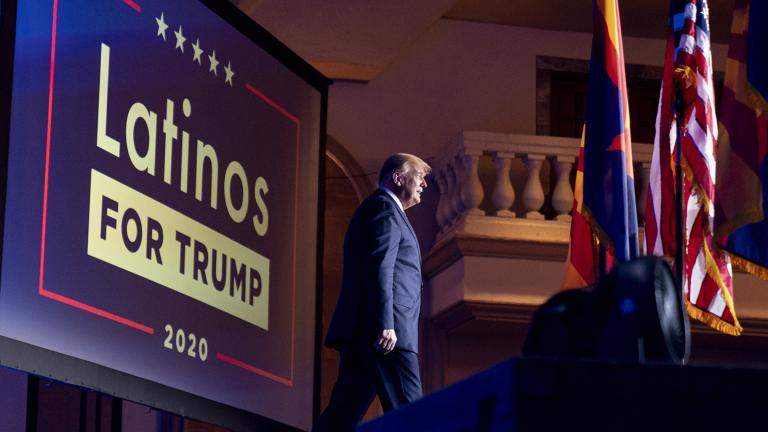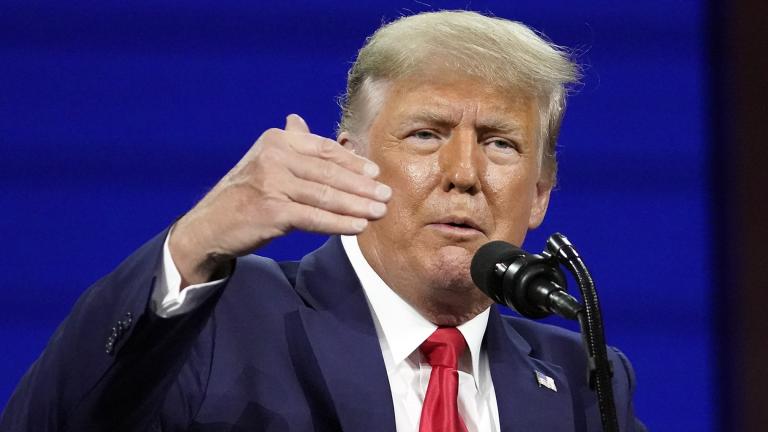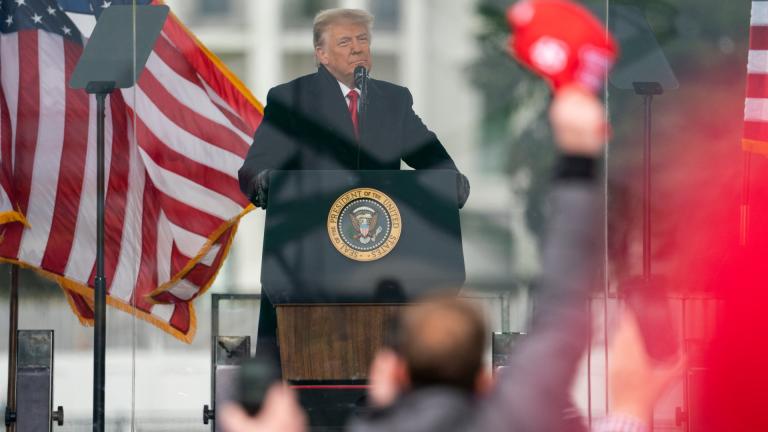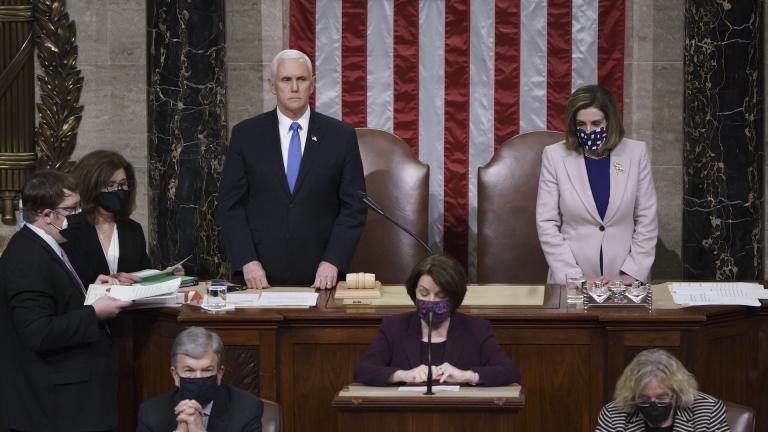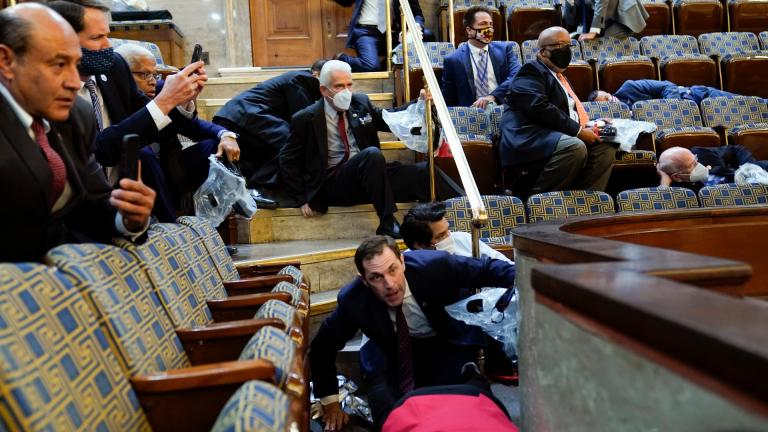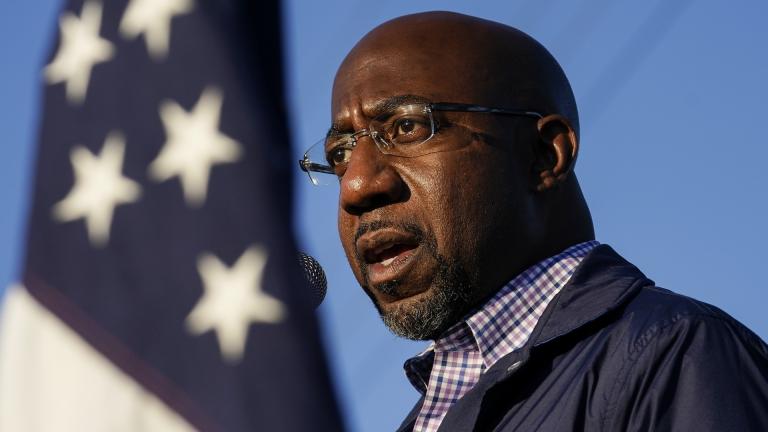The defeat of a constitutional amendment to overhaul how Illinois taxes income will mean painful cuts and will not avert tax increases, Gov. J.B. Pritzker said Wednesday.
The amendment won just 45% of the vote, far short of the 60% needed to change the state’s constitution to allow income to be taxed on a graduated schedule, according to early unofficial returns.
“There will be cuts and they will be painful,” Pritzker said.
Pritzker blasted the “millionaire and billionaire” opponents of the plan he dubbed the “fair tax,” and said they "lied" to Illinois residents to avoid paying more in tax to the state.
“The opponents of the fair tax lied about what would happen if it passed, and they left all of the working people of Illinois holding the bag,” Pritzker said. “They opposed it for their own selfish interests.”
Had the amendment passed, income above $250,000 would have been taxed at a higher rate, but those who earned less than that would have paid less than they do now, Pritzker said.
The amendment’s opponents “threw the middle class under the bus,” Pritzker said.
“Millionaires and billionaires opposed it to protect their own wallets, deceiving the public about its purpose,” Pritzker said.
When he took office in January 2019, Pritzker said he found Illinois’ finances in an “untenable” situation after a budget impasse that stretched for two years under former Gov. Bruce Rauner, whom Pritzker defeated.
Pritzker said he has no choice but to take action to right the state’s fiscal situation — but now only had two choices: an income tax hike that would hit everyone the same or deep, painful cuts.
“We now sit at a crossroads,” Pritzker said.
It would take a 15% cut across the board to balance the state’s budget, which would mean less funding for schools and police departments across the state, Pritzker said.
“Everything is on the table,” Pritzker said, vowing to protect the state’s credit rating. That determines how much the state has to pay in interest to borrow money.
Pritzker did not rule out asking lawmakers to approve a tax hike as soon as later this month, when the General Assembly gathers for its fall veto session.
“Republicans and special interests” who opposed the graduated income tax hike will be responsible for the pain the people of Illinois feel as a result of those cuts, Pritzker said.
“I will never forget” what some of the wealthiest Illinoisans did to defeat the graduated tax hike, Pritzker said.
Pritzker said he had no regrets about contributing $58 million of his own fortune to the campaign for the amendment. His contributions were met with $53.7 million contributions from Ken Griffin, Illinois’ second-richest resident, the CEO of the hedge fund company Citadel, and other billionaires, including his cousin, Col. Jennifer Pritzker.
After the results, Griffin called for Pritzker to make structural reforms to Illinois’ finances.
“Illinois voters sent a message that with an $8 billion deficit and two massive tax hikes in the last 10 years, we cannot trust Springfield politicians with another tax hike,” said Lissa Druss, spokeswoman for the Griffin-backed Coalition to Stop the Proposed Tax Hike Amendment.
When asked if the corruption investigations swirling around the state Capitol hurt the prospects of the so-called fair tax amendment, Pritzker vowed to resurrect his proposals to reform state government, including a ban on state lawmakers lobbying their former colleagues after they leave government.
Pritzker also paid tribute Wednesday to Senate Republican Leader Bill Brady, who announced he would step down from his position.
“Leader Brady has exemplified what it means to advocate for his caucus and pursue common ground,” Pritzker said.
Contact Heather Cherone: @HeatherCherone | (773) 569-1863 | [email protected]

